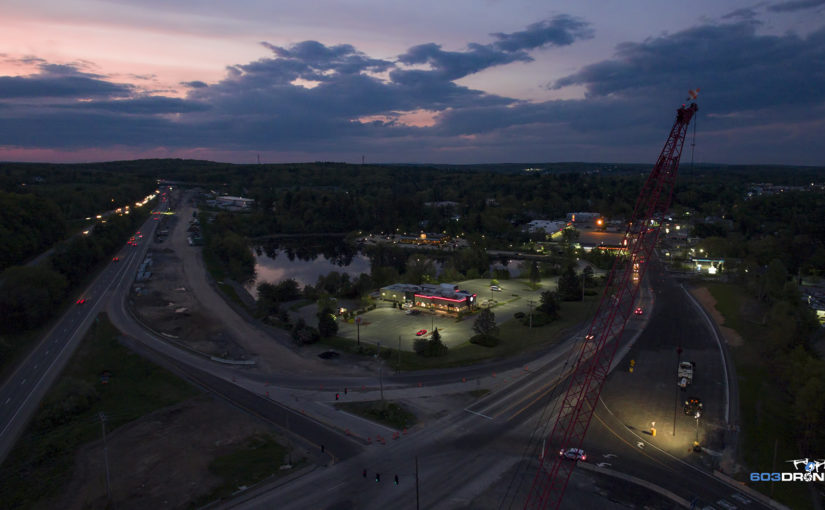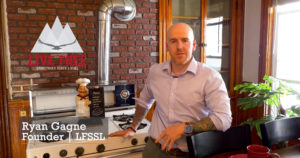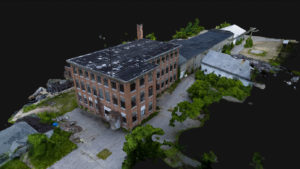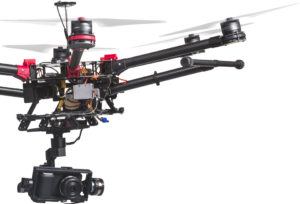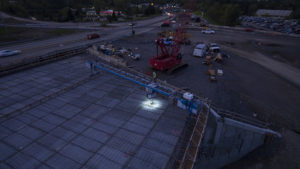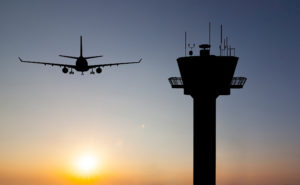Night operations are one of the trickiest subjects any commercial drone services provider has to deal with. Although a client may be throwing money at a provider to capture footage after dark, there’s a very good chance that footage could end up costing both the provider and the client in unexpected ways. When the new “Part 107” rules for commercial drone operations were released in 2016, one of the sections of the new regulations dealt with the period of time in which a commercial drone operation can be performed. Under Section 107.29, this period of time is defined as that which falls between civil sunrise and civil sunset. Or, if the aircraft is equipped with appropriate anti-collision lighting visible for up to 3 statute miles, then the period is extended to 30 minutes before civil sunrise to 30 minutes after civil sunset. Flying commercially at night – in contrast with flying for recreation – is expressly prohibited in the regulations. Prohibited, that is, unless you are approved for a waiver to this section of the regulations.
In order to receive a waiver to 107.29 – known more commonly as a “daylight waiver” -, an applicant must submit a safety plan that details a number of actions they will take when conducting night operations to safeguard against things such as unexpected obstacles, night illusions, loss of control of aircraft, the launch and recovery area, flight over people, and more. It is a rigorous process that many find frustrating enough that they just give up on their application after the first couple rounds of denials and requests for more detail. When 603 Drones, LLC submitted our initial, very detailed application, we received a request for information back from the FAA asking about only one section of our application – the illumination of the operational area. We sent back additional details and, within a short time, we received our approved waiver.
So why was it so easy for us when so many others have had difficulties passing FAA’s requirements? Because, from the outset of our company, we have operated with the belief that safe and responsible operation of our equipment is the only way to conduct our business. Night operations require a higher level of skill, training, and situational awareness than daylight operations and we made sure we knew what we were doing before we even attempted to receive our waiver. In addition, our team comes from backgrounds that involve extensive experience with OSHA, ISO, and other forms of safety-based cultures and methodologies. We draw on these experiences every day.
This is our commitment to our clients: That we will conduct our business in the safest, most responsible manner possible and in full compliance with all federal, state, and local regulations.
Author: Jeremy
Jeremy Jones is the founder of 603 Media Group and 603 Drones, LLC. He is a FAA Part 107 pilot and has experience flying multiple Small Unmanned Aircraft System (sUAS) platforms in commercial applications. He is also versed in both state and federal regulations as they relate to commercial vs hobbyist sUAS operations and helps new remote pilots to navigate these very tricky subjects.


